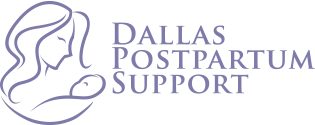Perinatal depression and anxiety describes various mood and/or anxiety disorders during pregnancy and after childbirth. Many times people exhibit symptoms of both depression and anxiety, causing a very agitated, anxious depression. Unfortunately perinatal depression/anxiety often go undetected and misdiagnosed.
Perinatal Depression Symptoms
- Mood swings
- Crying
- Hopelessness
- Insomnia
- Loss of Sexual Interest
- Sadness
- Irritability
- Guilt
- Feeling Worthless
- Appetitive Changes
- Anger
- Withdrawn
- Fatigue
- Overwhelmed
- Diminished interest pleasurable activities
- Inability to Concentrate
- Suicidal thoughts/thoughts of death
- Thoughts of wishing you weren’t here
- Thoughts of wanting to run away
The Edinburgh Postnatal Depression Scale (EPDS)
The EPDS is a 10-item, assessment tool that takes about 5 minutes to complete. This scale has been validated with a number of research studies which have shown the tool to be a reliable measure of depression during the postpartum period. It is generally accepted that a score of 10 is possible PPD and a score of 12 is probable PPD.
Download: Edinburgh Postnatal Depression Scale 1 (EPDS)
Perinatal Anxiety Symptoms

- Feeling an impending sense of doom & worry
- Anxiety/Panic Attacks
- Obsessive thoughts/behaviors
- Feeling fearful
- Sleep disturbances
- Racing thoughts
- Feeling edgy
- Racing heartbeat
- Nausea
- Fear of losing control
- Irritability
- Restlessness
- Fatigue
- Difficulty concentrating
- Insomnia
- Intrusive thoughts or images
- Avoidance of people or places
- Having scary thoughts about you or your baby
- Chills/hot flashes
Baby Blues
Q: Is this the Baby Blues?
The Baby Blues is not PPD. Experts estimate about 80% of new mothers experience weepiness, moodiness, irritability and fatigue during the first 2 weeks after giving birth. The Baby Blues are a normal adjustment period and can usually resolve without any medical assistance.
Q: When should I seek help?
You should seek help by a licensed clinician who specializes in postpartum care when:
- Symptoms last longer than 2-3 weeks after childbirth.
- You experience symptoms anytime during your first year postpartum that concern you.
*Women experiencing symptoms that seem unusually severe (severe agitation, delusional or bizarre thinking, hallucinations, insomnia, confusion, and a feeling of being out of touch with reality) should be referred for immediate medical intervention. Although rare, (1-2 in 1000 birthing persons), Postpartum Psychosis can initially be mistaken for the Baby Blues or Postpartum Depression and is considered a medical emergency.


